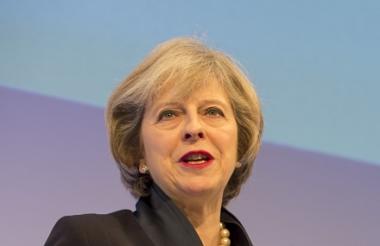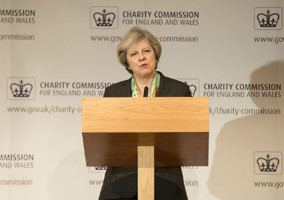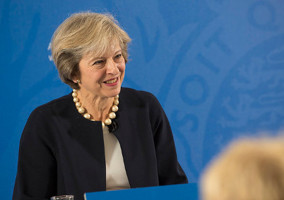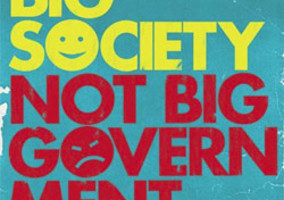Yesterday Prime Minister Theresa May announced her first big initiative: the shared society. David Ainsworth asks what this means for charities, and whether her ambition can be delivered.
There's a lot to like about the shared society, Theresa May's grand plan for Britain, which she announced yesterday at the Charity Commission's annual meeting. But there are also a few things to be wary of.
May's vision is one of social equality and justice for those struggling on the margins of society, and it chimes extremely well with the ambitions the charity sector has for this country. She appears to want this to be the thing, other than Brexit, that will define her leadership.
So what to think of it?
At first glance it may have looked a bit, well, familiar. The assembled charity leaders might be forgiven for thinking: “Big initiative, light on policy, uses the word society. Haven’t we been here before?”
Time might well prove them right, too. There are distinct similarities between this announcement and David Cameron’s initiative, the big society.
But then, there are also distinct differences.
Light on policies
The shared society speech was light on policies, but it did at least suggest that there were some, and that they joined together in a coherent way, which is much more than can be said for the big society. We will have to wait and see if there really are policies, and if they are good ones, and if they come with any money attached. But it feels as if there’s something there.
And it's very good that Theresa May said things the charity sector wanted to hear. She talked about tackling poverty, about solving the housing crisis, about social care. The one area where she did deliver solid plans – mental health – is an area where the sector has led the way in changing attitudes.
She also seems to have understood the idea that you can’t just roll back the state and expect charities to pick up the pieces. She was very clear that the state must be active in changing people’s lives for the better, rather than just getting out of the way and hoping for the best.
Must involve charities
Hopefully there will be an attempt to involve the sector in delivering this change. If there is, the state must continue to be involved as a convenor, partner, and funder.
Mind you, there wasn’t actually that much mention of the charity sector in the speech. There was some – enough to show she was aware of her audience – but little to show how social sector bodies might be tasked with delivery. To be honest, if all the machinery of government is committed to tackling the problems of fairness, the charity sector shouldn’t complain too much. At least there will be someone to cheer on from the sidelines.
Another positive point is the fact that Theresa May was at the Charity Commission, talking about charities, to an audience of sector people.
One suspects this may be fortuitousness, rather than a deep commitment – the commission’s annual meeting might just have happened along at roughly the point that she finished the speech – but still, she was there. And that’s got to be good news - a prime minister actively engaging with and praising the sector, after a couple of years in which charities have mostly only been mentioned by politicians in connection with the words “scandal”, “disgrace” and “we really don’t want to hear what you think”.
Of course, David Cameron talked a lot about charities early in his premiership, and look how that turned out. And the Tories still have many senior people who are deeply suspicious of the sector. So even if Theresa May is feeling well intentioned towards charities now, there's room for it to go wrong.
The proof of the pudding will be in the eating. May is far from the first prime minister to set out a big idea. Many of her predecessors have seen those ideas founder on the rocks of exigencies and events. And May has Brexit looming over her, just as recession and referendum loomed over David Cameron, and eventually condemned the big society to a footnote.
Even if events do not scupper the vision, other things can go wrong. We may still find she does not have a coherent suite of policies to implement her vision. We may find she can simply not deliver what she wants. We may find that if she does, those policies do not suit the sector as well as it currently looks.
But who knows? It might just work.
Related articles












